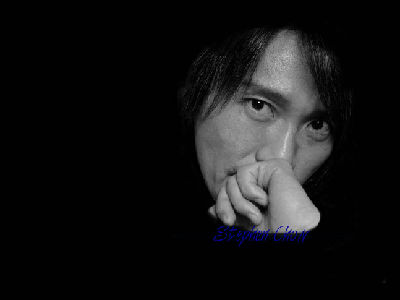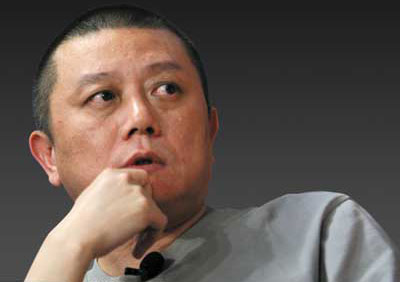Nowadays: Choose your own idol
In the 1990s it seemed that cultural values were entering a new age, no longer driven by traditional ideas alone. Silly talk, as personified by Hong Kong actor Stephen Chow and mainland author Wang Shuo became popular among young people. The influence of Chow's 1995 classic "A Chinese Odyssey" cannot be ignored, although it did not gain real popularity until the year 2000. From then on young people liked to copy his lines and he became another idol.
 |
|
Stephen Chow
|
His style was named Mo lei tau, which means "another kind of humor". Typically this contains nonsensical parodies, juxtaposition of contrasts, sudden surprises in spoken dialogue and action, and improbable and deliberate anachronisms. Some hail his humor as a victory of folk culture.
Screenwriter and novelist Wang Shuo is famous for his play "Stories from the Editorial Board". His novels have a style of their own and are full of folk expressions. The way he ridicules public elites also attracted many followers.
 |
|
Wang Shuo
|
The 21st century is said to be the age of the Internet. Stardom is no longer a guarantee of long-term popularity. Fans can choose their idols from an ever-widening field, and they can change their allegiance at the drop of a hat.
Movie stars, movie directors and pop musicians like Zhang Ziyi, Andy Lau, Ang Lee, Song Zuying and many more have become household names and the idols of their generation in China. When China started to import Hollywood blockbusters in 1994, American actors like Harrison Ford won a following in China. But celebrities must now have a worldwide fan base or risk being quickly forgotten by all but the most devoted of their fans.
Not only pop stars continue to be idols – political leaders like Mao and Zhou Enlai still have a strong following. Sports stars like Yao Ming and Liu Xiang are popular with huge numbers of people. Even high-performing businesses are now known to an ever-wider audience-the young in particular choose them as idols in terms of career development.
There has never been an exact definition of what constitutes an "idol". People can choose their own icons in response to their interests or what they hold to be worthwhile. Strangest of all nowadays are those who claim they have no idol but themselves.
(China.org.cn by Wu Huanshu, December 30, 2008)